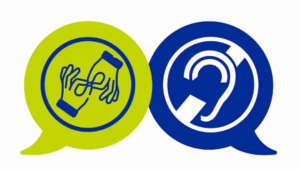When speaking American English, the clearest sound comes from reducing regional accent and direction towards Modern Use Standard English (MUSE). MUSE is classed as “midwestern English” and is known as the “Standard American Accent.” When looking to achieve MUSE, accent reduction training is an invaluable tool for polishing speech patterns and enhancing diction.
Accents by Region
Accents can vary greatly from one end of a country to another. In a country as large as the United States, the population origins heavily influence the way English is spoken. Philadelphia’s roots are in the north of the United Kingdom. Minnesota has an unmistakable Dutch sound, made famous by the film and TV series Fargo. Multi-cultural New York reflects the influx of Italian, German, Eastern European and Russian immigrants two centuries ago.
Speaking like a stereotype
Whatever its origins, an accent can have both positive and negative connotations. People’s past experiences can shape their reaction to an accent. Accents remind us of people we love and people we dislike, fun times and difficult times. They can feel like home or remind you that you’re far away.
It’s impossible to know people’s personal preferences and how their experiences shape their reactions. However, academic research shows that linguistics play a crucial role in stereotype formation. Films and TV shows often use strong accent stereotypes to allow viewers to quickly make assumptions about a character. This stems from an unconscious, inherent bias against those we perceive as “different,” or “not from our group.” It can be an incredibly damaging tool when used to classify a character with a particular accent as “evil.”
This is an unfortunately common cultural and media practice. Strong accents can invite discrimination that moves from the screen to infiltrate our real-life reactions. This problem is receiving more and more widespread recognition and understanding. While we, as a society, work to change and eliminate stereotypes and biases, accent reduction can provide daily relief. Having a “Standard American Accent” gives an advantage in recognition and understanding in the workplace and during social events.
Don’t be at a disadvantage
A survey in the United Kingdom aimed to find the “least popular accents” among call center customers. They found that accents from Liverpool, in the north of England, and Birmingham, in the Midlands, were immediate outliers. “Queen’s English,” (the ‘standard’ English accent typical of upper and middle-class people in South-East England) was judged the most appealing.
It’s an unfortunate truth: people form opinions of others by their accent. Strong accents, or those burdened with negative stereotypes, can undermine a message regardless of the speaker.

Speak like a native
Fluency in a foreign language is a career-enhancing skill. Communicating with people in their own language provides a competitive edge in business as well as a social boost.
Being able to write fluently doesn’t necessarily translate to successful face-to-face conversations. Words can take on an entirely different meaning if they are not pronounced correctly; often with amusing (or costly) consequences. Linguistics is a complicated science. We form words by combining the workings of the throat, mouth and tongue. People develop the ability to form words in accordance with the language they speak. A non-native speaker without this ability will pronounce a word differently from a native speaker. Emphasis also changes meaning. It’s important to emphasize the proper word in a phrase to communicate your point. Conducting business negotiations in a foreign accent that reads as “comedic” can quickly strip authority.
The professional approach
Accent modification or reduction programs are not intended to eliminate a person’s accent completely. Accents are an inherent part of who we are. However, an accent modification program can improve and maximize the ability to communicate effectively in a business setting.
A company’s wealth and success can often be measured by the type of professionals it is able to attract and hire. Talent might come from anywhere in the world, so language skills become crucial to international employees’ success. In global companies, international talent is brought on board every day. To ensure knowledge transfer, proper skills in the company’s corporate language are key.
How often do brilliant international employees fail to have an impact because colleagues find it difficult to understand their speech?
How often are ideas overlooked because international employees struggle to communicate their points?
Speaking is not the only way to effectively communicate. Accent modification or accent reduction training programs integrate listening, reading, writing, and presentation skills.
Whether it’s to reduce a strong regional accent or improve foreign language skills, accent reduction is tailored to the individual. Language level, focus areas, and profession affect the program writing and delivery.
Contact Global Arena today to set up a consultation for your accent reduction training!




